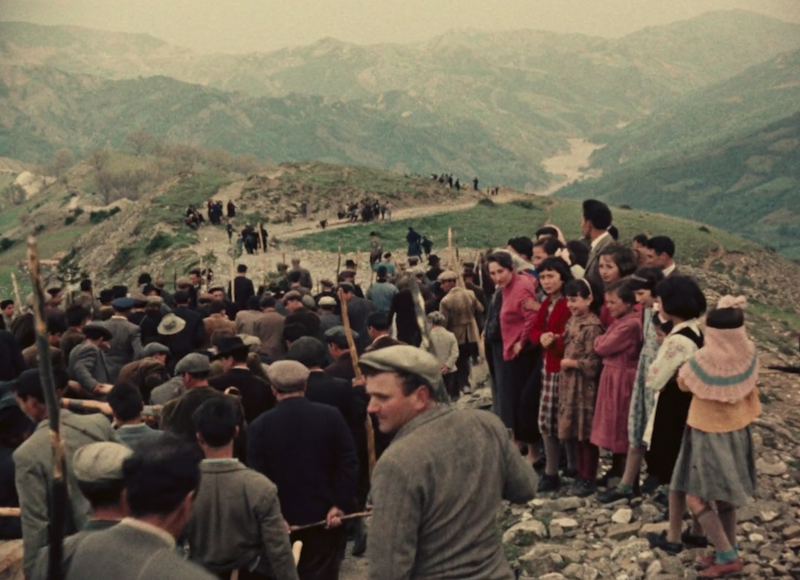Short films tend to be unrecognized or underappreciated as far as the art form is concerned. Yet there’s something artistically virtuous about this cinematic brevity. To be able to show the entire world of humanity, while focusing on singular details requires talent and patience. Italian filmmaker, Vittorio De Seta, had all of those elements.
Martin Scorsese (who’s active in the preservation of De Seta’s films) described De Seta as “an anthropologist who speaks with the voice of a poet,” and he’s correct. Many of De Seta’s short films were shot in the small villages of Sicily, Sardinia, and Calabria during the 1950s. He explores daily village life, which even in the 1950s, was on the verge of extinction.
De Seta captured the beauty and the struggle of living a rural life through the lives of fishermen, shepherds, miners, and farmers. In his 1951 short film, Islands of Fire, De Seta explores the instability of the Sicilian coastal life before, during, and after the eruption of a volcano. While shooting another film, the volcano on this small Sicilian island was erupting and De Seta filmed the event.
In a mere 11 minutes, De Seta at first captures the slowness of life. Fishermen working hard, struggling with sea’s waves, moving in constant cooperation, without which nothing would be possible. The community’s fully connected through visible and invisible strands. Children play and run around; women and men gather the harvest; women make meals. Dresses hang on the clothesline as if they are “living” their own lives. Against the blue sky and white stone houses, the cotton dresses flutter in the breeze.
The clouds begin to gather. The light’s changing, the deep blue’s disappearing. Fishermen in boats hurry back to the coast to avoid the mouth of the volcano. During the eruption, a father is holding his child. The elders sit by the hearth, or near the table, in silent prayer. Nobody knows what the future will bring. They’re waiting.
The danger has passed. The sun’s breaking through the clouds and once again, the blue sky and calm illumination emerge into the landscape. The sound of the bell signals that it’s safe to leave the homes. Children are going back to school, the dogs are bathing in the sea, a grandmother tends the garden, while tightly holding her small grandchild. There’s no fear.
De Seta had a great gift at capturing people who were willing to give one small piece of themselves to him, or at least to his camera. He’d usually work alone, and before embarking on the shooting of the film, would develop small friendships with the locals. Without a doubt, he had his own purpose, to make a film, but judging from his work, it’s clear that this was a vocation and a calling for De Seta. There was no “agenda,” but pure openness to the embodied spirit of the people and their metaphysical status. Because he recognized that each inhabitant has his or her own interiority, De Seta was able to capture the glimpse of the individual souls as they came face to face with nature.
Nature doesn’t care for us. It’s often violent and demands fear and respect. The people of the island have that, yet they’re also driven by strength and fear that isn’t cowardly and anxious. It’s the fear that comes from the knowledge that they’re not the beginning or end. They’re part of the landscape, holding onto the lived reality, secure in the knowledge of their own mortality.
What’s the meaning of time for us? Is it measured in fear or in joy? For the inhabitants of this small village, time is more than chronology. Their way of being is open-ended, yet purposeful. These are people with a mission that’s realized every day when they wake up and when they rest. The meaning of life isn’t questioned but lived. The specter of end and death is always there, which paradoxically lifts them to the heights of joy. They affirm their own humanity and dignity with every hour that passes.

